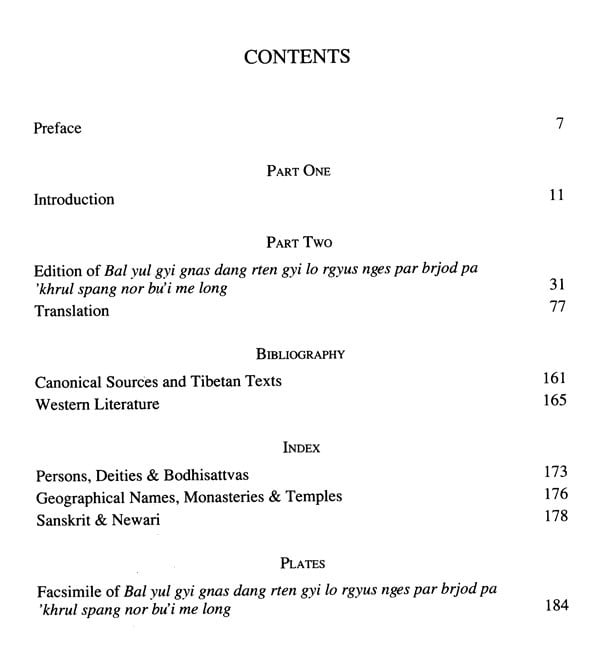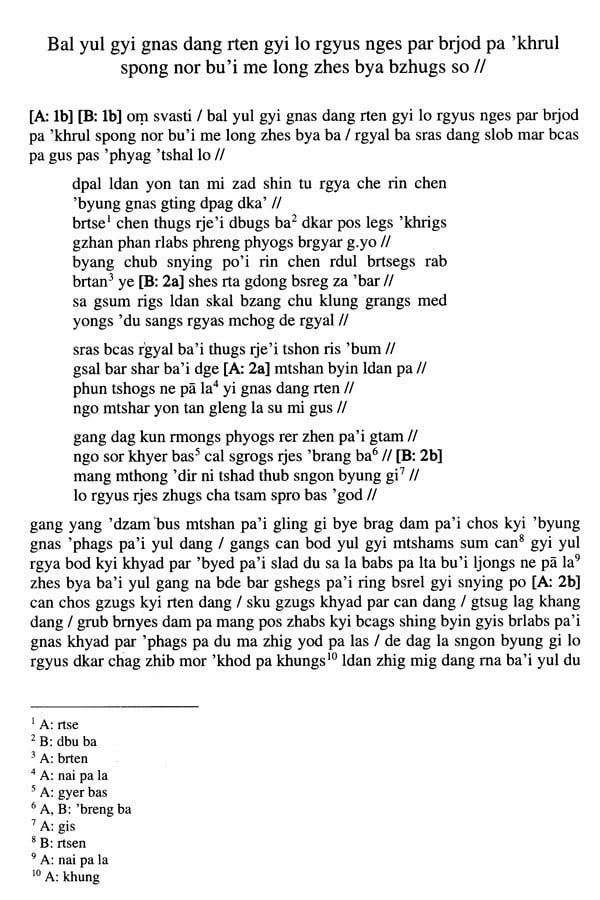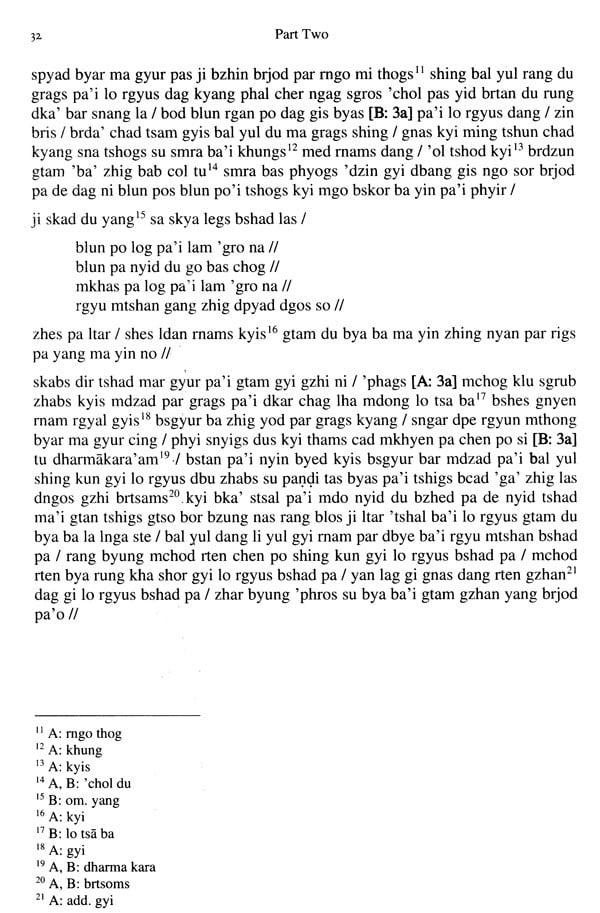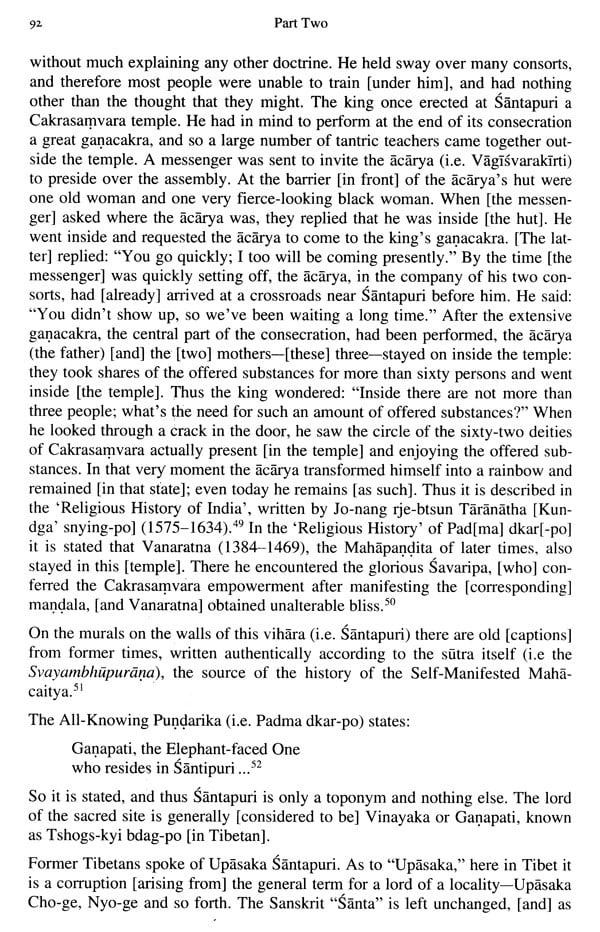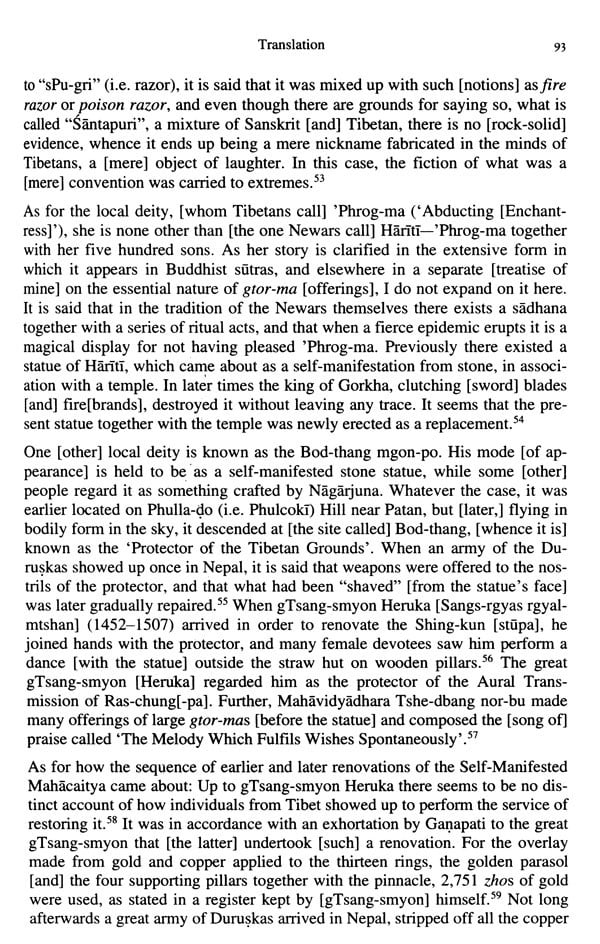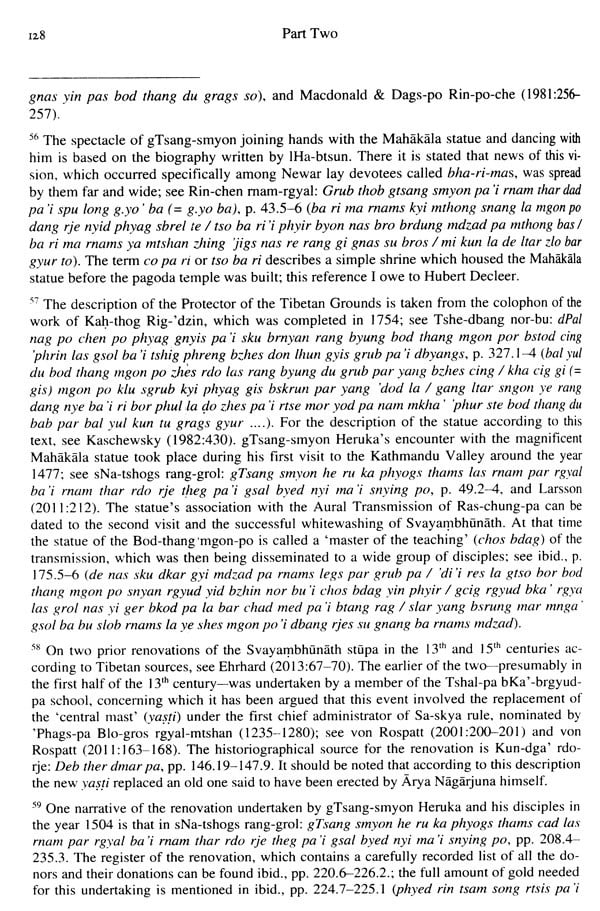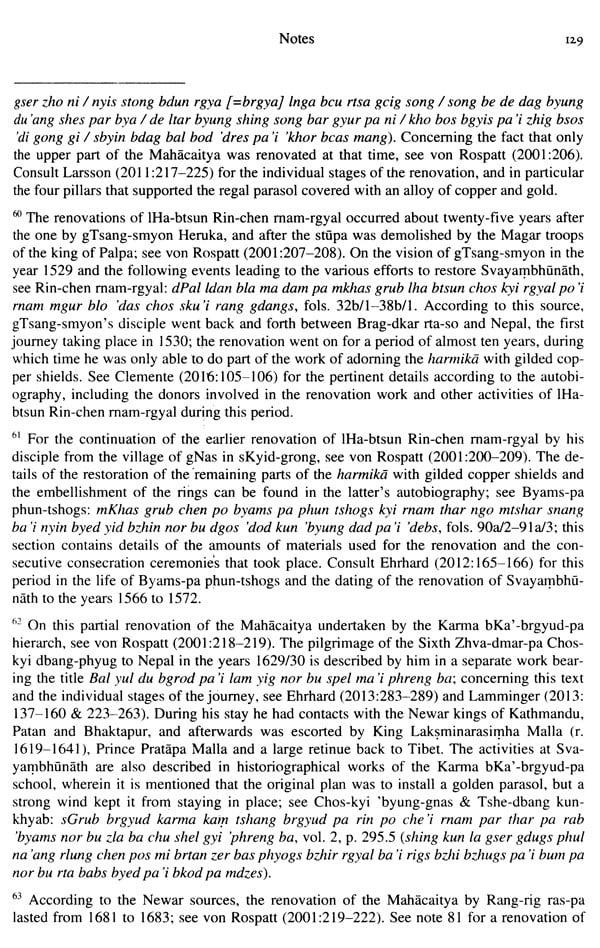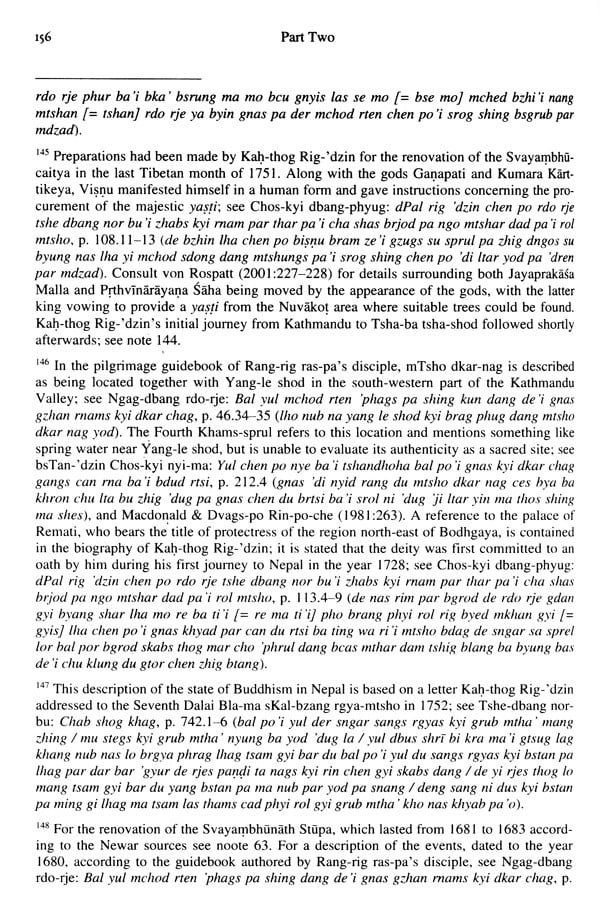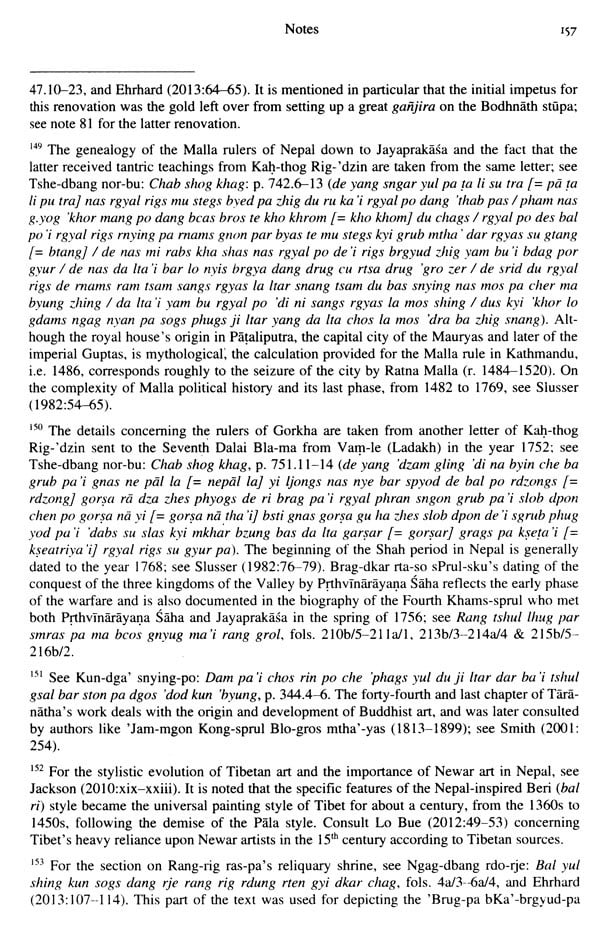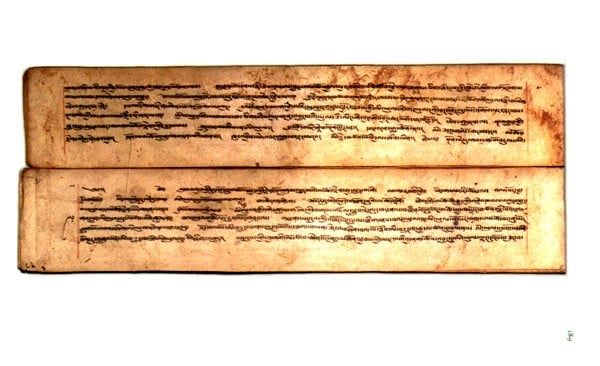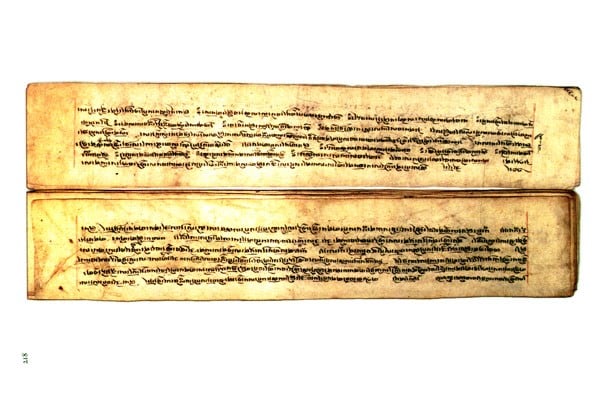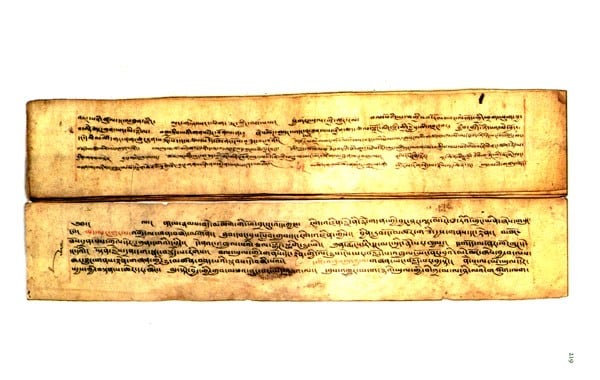
A Mirror of Jewels which Clears Away Errors- A Critical Guide to the Buddhist Sacred Sites of the Nepal Valley
Book Specification
| Item Code: | UAO746 |
| Author: | Franz Karl Ehrhard |
| Publisher: | Lumbini International Research Institute, Nepal |
| Language: | English |
| Edition: | 2020 |
| ISBN: | 9789937078764 |
| Pages: | 220 |
| Cover: | HARDCOVER |
| Other Details | 9.50 X 7.00 inch |
| Weight | 530 gm |
Book Description
A critical edition, an annotated translation and photographic reproduction of the original dbu med manuscript are presented here. gratefully acknowledge the interest in the text taken by students during reading classes at the Ludwig Maximilians-Universität in Munich (Institute of Indology and Tibetology) and the Ruprecht-Karls-Universitäit in Heidelberg (Centre for Asian and Transcul tural Studies) in the winter terms 2018/19 and 2019/20. Special words of thanks to Philip Pierce, South Asia Institute, Patan, who not only checked the Eng lish but also corrected the translation with great care and patience; and Ralf Kramer, Bavarian State Library, Munich, who assisted with the final editing The indices were prepared by Dr. Michael Pahlke, and through the kind help of Dr. Christoph Cüppers the study has been included in the publications of the Lumbini International Research Institute.
Bal-yul, [or] Nepal, is a great country [consisting] of three royal domains, which are known as Yam-bu (i.e. Kathmandu), Ye-rang (i.e. Patan) and Kho-khom (i.e. Bhaktapur). Among these, in the territory of Yam-bu: [1] on the peak of a dense forest is an elevated dome called the 'Self-Arisen Caitya 'Phags-pa shing-kun': [2] the teaching thrones of the first four Buddhas of the Fortunate Acon (ie. Vipasyin, Sikhi, Viśvabhu and Krakucchanda); [3] the Bya rung kha-shor Stupa, close to a thousand cubits [in circumference], which is said to be one of the eight caityas known to have been erected by the Ma-mos in eight countries when once they were pacified by Heruka and his fierce entourage; [4] the Five Rocks site, where Häriti, the gtor-ma mistress, was pacified together with her five hundred sons; [5] the skull of Sariputra in the royal palace of Yam-bu. [All this] is said to exist. Many [other] unique sacred sites are located [there in Nepal], including [6] Pham-[m]thing, the site of a nine-hooded serpent, and [7] the five great towns [as well].
Concerning the work of Ye-shes dpal-'byor, including a description of its contents and a full translation of the section on the Mongol domains, see Kapstein (2011:343-350). Consult Kim (2013:166-173) on the ethnic identity of Ye-shes dpal-'byor, a learned dGe-lugs-pa teacher of Mongolian origin from Amdo, and his works relating to history and geography.
**Contents and Sample Pages**

